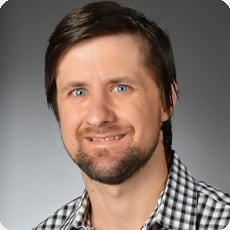Make your child a learning addict
The Doc Smitty tells us how (Masters in Parenting)
 Now you know that you can read the same book repetitively and that actually can be good for your child.
Now you know that you can read the same book repetitively and that actually can be good for your child.
But how do you do it in a way that keeps you from becoming mind-numbingly bored and keeps your child learning to their full potential?
To answer this question, you are going to need a quick lesson in neurology, biochemistry and addiction. Don’t worry, I promise it will be quick.
Dopamine is a very powerful chemical that works in the brain to assist motor control, motivation, cognition and reward. It was once thought to be decreased in children with attention-deficit hyperactivity disorder (ADHD), although this has come into question recently. Regardless, the treatments that seem to help best in children with ADHD are those that increase the activity of dopamine in the brain. Dopamine is also involved heavily in addiction whether that’s exercising, gambling or doing drugs.
In his book “Talk Like TED,” Carmine Gallo describes the work of Martha Burns, Ph.D., on dopamine and learning. He writes, "Drugs and gambling are artificial triggers and lead to serious consequences. Isn’t there a less-harmful means of achieving that mental high? There sure is. According to Burns, dopamine is also released when people learn something new and exciting – a much healthier way to feel good!"
Dr. Burns blogs on the same topic on The Science of Learning Blog and says, "I like to refer to dopamine as the 'save button' in the brain. When dopamine is present during an event or experience, we remember it; when it is absent, nothing seems to stick."
So, if you want your child to learn something new, you have to think like you're trying to get them addicted to learning, addicted to new information.
How?
According to Dr. Burns, "The answer is pretty straight forward – 'make learning NEW, EXCITING, and REWARDING.'"
Now, how do you do this when you are reading the same book over and over?
1) Pick a theme for the day (numbers, colors, shapes). At the end of each page, stop and talk about the pictures on the page in the context of your theme. How many trucks are there? Can you find the red truck?
2) Try different voices for different characters. My boys think this is hilarious and it keeps them thinking.
3) After your child seems to have a book memorized, insert the wrong word into the story and see if they catch it. When possible use the opposite word to start helping them learn opposites.
Let's get our kids addicted to learning by making it new, exciting and rewarding.
Gallo, Carmine (2014-03-04). Talk Like TED: The 9 Public-Speaking Secrets of the World's Top Minds (p. 117). St. Martin's Press. Kindle Edition.
Get to know Justin Smith, M.D.
 Justin Smith, M.D., is a pediatrician in Trophy Club and the Medical Advisor for Digital Health for Cook Children's in Fort Worth, Texas. Dr. Smith is an experienced keynote speaker for a variety of topics including pediatric/parenting topics, healthcare social media and physician leadership. If you are interested in having Dr. Smith present to your conference or meeting, please contact him at thedocsmitty@cookchildrens.org.
Justin Smith, M.D., is a pediatrician in Trophy Club and the Medical Advisor for Digital Health for Cook Children's in Fort Worth, Texas. Dr. Smith is an experienced keynote speaker for a variety of topics including pediatric/parenting topics, healthcare social media and physician leadership. If you are interested in having Dr. Smith present to your conference or meeting, please contact him at thedocsmitty@cookchildrens.org.
He has an active community on both Facebook and Twitter as @TheDocSmitty and writes weekly for Cook Children's checkupnewsroom.com. He believes that strategic use of social media and technology by pediatricians to connect with families can deepen their relationship and provide a new level of convenience for both of their busy lifestyles. Dr. Smith’s innovative pediatric clinic, a pediatric clinic “designed by you,” open now. Click to learn more. To make an appointment, call 817-347-8100.
